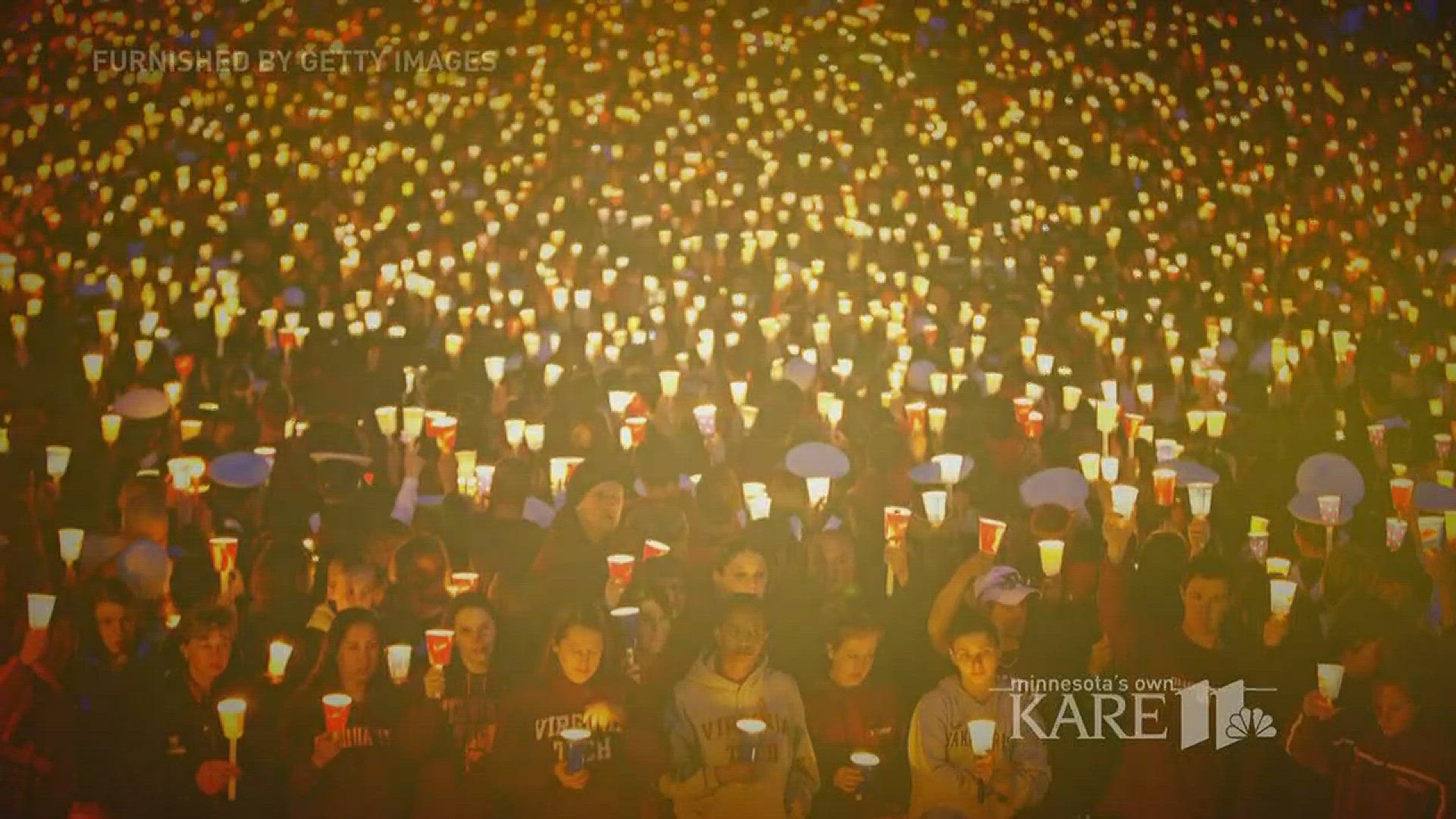Columbine.
Charleston.
Aurora.
Fort Hood.
San Bernardino.
Sandy Hook Elementary.
Virginia Tech.
Orlando.
In our lifetimes we've absorbed all of these, and more than a hundred other mass shootings.
This morning, we added the worst yet.
And this morning, many of us were uncomfortably numb.
"I think as we get hit with more of these events, they're happening over and over and over again, it's human," says Jillian Peterson. "You have to let the shock wear off. It's not going to hit you in the same way."
Peterson is an assistant professor of criminal justice at Hamline University.
"We learn sort of psychologically how to process this and so it just doesn't have the same impact, because we've been feeling it over and over and over again," she says.
Peterson says this is a dangerous phenomenon.
"Because we are being traumatized by it, we are just not having the same emotional reaction to it as we used to," she says. "It's become normal, and that in itself is scary."
When we expect this to happen, we live in a heightened state of anxiety.
We live asking when -- not wondering if.
And that hyper arousal will make us angry. And suspicious. And tired. And it makes us different people.
Because people are just not designed to be able to feel every single one of these. How can we possibly "thoughts and prayers" our way to peace for 59 people who have hundreds of family members grieving them tonight?
Like we did for 49 people in the summer of 2016.
Like we did for those parents of the kids at Sandy Hook.
It's a question we have to face now, as we face the horror in Vegas.
Just like we have before.

